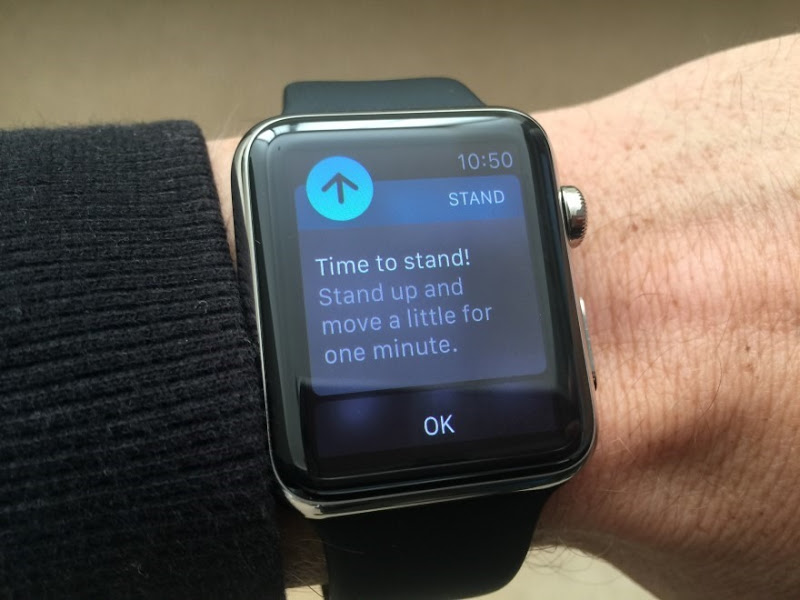How To Become Better With Online Privacy In 15 Minutes
Warning: Undefined variable $PostID in /home2/comelews/wr1te.com/wp-content/themes/adWhiteBullet/single.php on line 66
Warning: Undefined variable $PostID in /home2/comelews/wr1te.com/wp-content/themes/adWhiteBullet/single.php on line 67
|
| Uncategorized Category RSS Feed - Subscribe to the feed here |
|
|
 What is online privacy is and why is it? Online privacy, also understood as internet privacy or digital privacy, refers to how much of your individual, monetary, and searching information remains private when you’re online.
What is online privacy is and why is it? Online privacy, also understood as internet privacy or digital privacy, refers to how much of your individual, monetary, and searching information remains private when you’re online.
 Numerous individuals ignore the value of online privacy, however they must be aware of how much details they’re sharing– not simply on social networks but just through searching itself. What are those privacy issues that you might come throughout?
Numerous individuals ignore the value of online privacy, however they must be aware of how much details they’re sharing– not simply on social networks but just through searching itself. What are those privacy issues that you might come throughout?
The value of digital privacy becomes clear once you try to make a psychological list of individual things you’re ready to share with total strangers– and those you ‘d rather not. For sure, you do not want your medical records, bank statements, or perhaps specific products from your shopping cart to be extensively understood. Anyone who saw You saw how easy it was for individuals to acquire someone’s personal information like house address, friends’ names, tastes, or preferred locations based upon what they openly shared.
What You Didn’t Understand
About Online Privacy And Fake ID Is Powerful – However Very Simple
Yes, you can make your social networks account personal and share only specific material with a particular group of individuals. But how can you really know what social media does with the information you share? And what about your other online traces, like searching history, purchases, or perhaps your online correspondence?
A survey of American internet users revealed that 81% of respondents believed they had no control over data gathered by personal companies. Even worse– the number reached 84% when individuals were asked if they might control what information the federal government gathered.
How To Make Use Of Online Privacy And Fake ID To Need
To resolve similar concerns, the EU embraced the GDPR, or the General Data Protection Regulation. This set of laws, passed in 2015 and carried out in 2017, was planned to protect every EU resident’s privacy and information.
California’s equivalent CCPA also provides consumers 4 basic rights to manage personal details on the internet. The right to understand what individual details an organization gathers about them and how it is used and shared. Website registration is an inconvenience to most people. That’s not the worst feature of it. You’re generally increasing the risk of having your details stolen. In some cases it may be essential to sign up on online sites with faux data or you may desire to think about yourfakeidforroblox !
At the same time, some tech business keep client details dating back to years earlier. They’ve been logging every online site they checked out, all their choices, shopping practices, political views, and many more. How can you deal with that?
The right to be forgotten is the right to ask business to delete and surrender any information they’ve collected about you. It covers online chatting and third-party discussions.
People have actually fought to eliminate their names and images from “revenge pornography,” consisting of any pertinent online search engine results. Some have sent take-down requests for uneasy personal stories from their past, for example, petty criminal offense reports or humiliating viral stories.
The Ultimate Guide To Online Privacy And Fake ID
Arguably, the right to be forgotten protects those who want to forget their old mistakes and bring back privacy. The opposite camp, incidentally including some tech giants, slams this as censorship and rewording of history.
Information privacy (likewise called information privacy) is a branch of information security targeted at correct data handling, including consent, notice, and regulative responsibilities. Basically, it’s a capability to manage what information you expose about yourself on the internet and who can access it.
As an essential element of information sharing, data privacy is an umbrella term for data masking, file encryption, and authentication are just a few methods utilized to ensure that info is offered only to the licensed celebrations.
Up In Arms About Online Privacy And Fake ID?
Online privacy and security are closely associated ideas that affect your cyber safety. Digital privacy refers to the appropriate use, dealing with, processing, and storage of individual info.
The way social media manages your details is an element of digital privacy. As a rule, you consent to security and privacy guidelines by clicking “I agree” to the business’s privacy policy and Conditions and terms.
Online privacy problems range from the information you do not mind sharing (state, a public social media account) and bothersome privacy compromises like targeted ads to public embarrassment or breaches that affect your individual life. They likewise track websites that you visit after that.
Taken together, this information can be used for “profiling”, or making a consumer personality based on the person’s surfing, shopping, and social media choices. To name a few things, consumer personalities are widely used in individualizing advertisements. Profiling ends up being a major privacy concern, however, when data-matching algorithms associate somebody’s profile with their personally identifiable details, as this might lead to data breaches.
Social media data harvesting
Over the last few years, social media privacy struck the spotlight after a string of scandals, including the Cambridge Analytica story when they used information to manipulate voters, cyberbullying, and “doxing” (sharing private details openly).
Significant social networks have suffered data breaches, leaving millions of users exposed. A current example is Facebook’s huge data breach that exposed the individual information of 433 million users, including their complete names, contact number, areas, birth dates, bios, and e-mail addresses. There are so many individuals realize that, sometimes it might be required to register on online sites with lots of individuals and invented details may wish to consider yourfakeidforroblox!!!
For the most part, cookies are even practical and safe. These pieces of law collect your browsing info and let website or blogs remember your login, choices, language settings, and other details. Cookies might end up being an issue when it comes to huge amounts of data gathered without user authorization.
In December 2020, France’s data security regulator, the Commission Nationale de l’informatique et des libertés (CNIL), ruled that Google and Amazon had to pay 121 million dollars and 35 million euros for breaching Article 82 of the French Data Protection Act. CNIL fined both business for putting tracking cookies on their user’s computers without prior consent. Google went even additional and tracked users who had actually deactivated ad customization.
The recent App Annie report states that the users’ average time spent with their smart devices topped 4 hours 10 minutes in 2020– up 20% from 2019. More time spent on mobile methods more internet browsing, ads clicking, and, of course, app downloads.
Can we be one hundred percent sure what exactly those apps understand about us? Numerous apps request area details, usernames, contact number, or e-mail addresses. Some go further and ask you for risky authorizations– details that could cause difficulty if it fell into the wrong hands. It could be access to your phone’s microphone/recorder, electronic camera, contacts, and even messages.
A great rule of thumb is to think about whether you rely on the app provider to keep this info. If there’s anything you feel uneasy about, you can deny gain access to, either when the app asks you for consent or later in the app’s settings.
Online identity theft takes place when somebody accesses your personally recognizable info (PII) to dedicate scams. This info may be your motorist’s license, bank account information, tax numbers, or anything else that can be used to impersonate you online. In the worst-case scenario, your information might end up for sale on the dark web.
Bad guys impersonate trusted contacts, such as financial institutions, to fool you into surrendering sensitive info or opening malicious attachments. Malicious software that can access your gadget’s operating system and permit hackers to steal your individual details.
All those privacy and security concerns on the internet may sound scary and can make you feel powerless, however there are easy actions you can take today to cut the risk of online fraud. We assist you handle and safeguard your individual details if you worry about how much of your private info is readily available on the web.
Hackers utilize numerous plans to take your data. Much of them might not be obvious at first sight. Consider using an up to date, industry-leading antivirus software on your device, whether it’s a mobile or computer.
To keep your privacy on the internet, you can alter DNT settings in your web browsers. When you allow it for your browsing in Chrome, Firefox, or another internet browser– you inform website or blogs and third-party partners that you do not want to be tracked.
You can likewise limit your apps’ access to your personal info by going to your app or phone settings and pulling out of location or other information tracking.
A common mistake in online surfing is to merely click “concur” to any user arrangements and privacy policies without reading them. We strongly advise browsing any file before clicking “concur” or “accept.”.
If you do not have time to read it (and some user agreements are numerous pages long), do at least some research of what type of details the app or site asks of its users and whether you’re comfortable with that.
If you’re worried about what your search engine knows about you, it might be a great concept to change to another engine. DuckDuckGo, for example, markets itself as a more secure and private option to Google.
Do not click on links to hazardous or phony internet sites, or you run the risk of succumbing to a phishing attack and quiting your delicate data to a scammer. Some phishing threats are masked as ads, so be extra cautious with those.
If you follow these suggestions, you’ll understand where the danger might hide. Which will help you keep your online privacy safe.
Find more articles written by
/home2/comelews/wr1te.com/wp-content/themes/adWhiteBullet/single.php on line 180